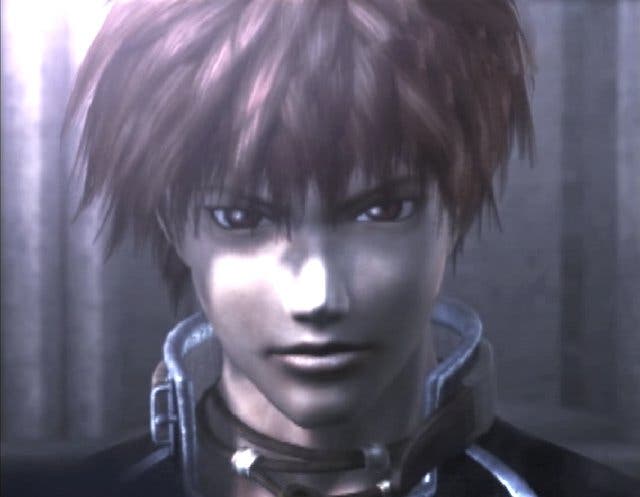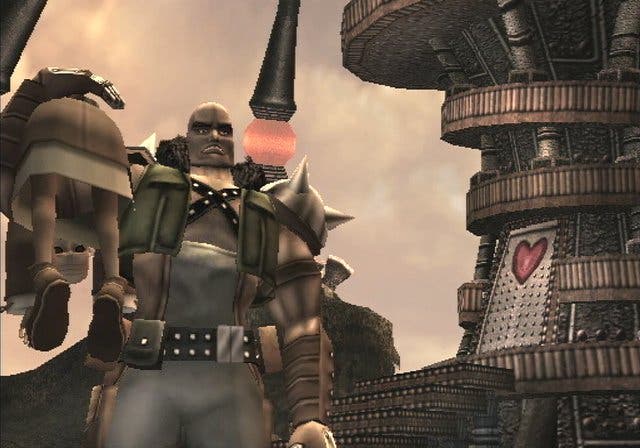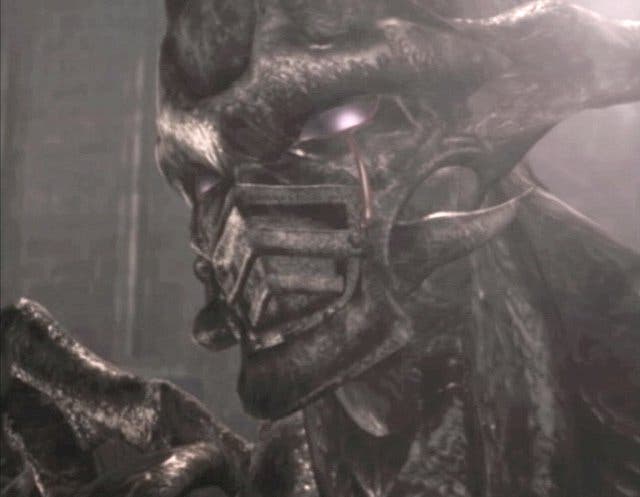Shadow Hearts: Covenant
Beat men in the Judgement Ring and swap gay porn with shopkeepers. A traditional Japanese RPG, then.
Another week, another Japanese RPG review. It's one of the busiest few months we can remember for the genre; admittedly, our pals across the pond are faring rather better than we are, with the likes of Baten Kaitos and Shin Megami Tensei: Nocturne gracing their shelves but showing no sign of reaching European shores, but for a change, we're not being too badly done by. Star Ocean 3 may have suffered in the conversion to PAL, but at least it got here; and Tales of Symphonia is out today, giving Cube owners a shot at one of the finest RPG titles ever, albeit a few months after most American gamers got their hands on it.
Shadow Hearts Covenant, when we started playing it, was due to arrive in Europe before Christmas. That isn't going to happen now - February was the most recent estimate we received for the game's eventual debut on these shores - but with the NTSC version exhaustively played, we thought it'd be nice to give you a heads-up on one of the first PS2 RPGs you'll be seeing in the New Year (or before Christmas, if you fancy going down the import route).
More Demons, Sir?

Shadow Hearts Covenant is the follow-up to one of the PS2's most sadly ignored RPG titles, the excellent Shadow Hearts, which followed the adventures of angsty hero Yuri as he mastered his ability to morph into the monstrous forms and fought off the Forces Of Darkness Threatening The World. With gothic styling and an unusual setting - Europe and the Far East in the pre World War One era - the game was a refreshing change from the norms of the genre, and thankfully proved rather more popular in Japan than it was in Europe - where few people, even RPG fans, have even heard of it, let alone played it.
This is the first problem with Covenant, in fact. The game is literally a sequel - it picks up Yuri's story from shortly after the end of the first game, with World War One now underway in Europe and Yuri using his demonic powers to defend the French village where he has settled from the invading troops, before an attack from a distinctly creepy pretty-boy cardinal sent from the Vatican stirs things up and starts off another epic quest. This is all easy enough to follow, even if you didn't play the first game, but it gradually gets more and more confusing - with characters, locations, objects and key plot points from the original Shadow Hearts becoming crucial to the game's story, and rarely being explained in any great detail.
That's a big issue, given how few people played the original game, and while there's a hope that it'll convince people to go back and play the (still excellent) first title, most will simply pass over Shadow Hearts Covenant and grab something more accessible. The decision to make a sequel to a game which ended on a fairly comprehensive note brings with it a number of other major problems for the storyline and character development too, though, which are worth touching upon.
Achey-Breaky Hearts Covenant

Yuri, who in the first game was twisted with angst over massive unresolved issues with his father and with his strange demon-channelling power, simply isn't much of an interesting character any more. He fixed most of his problems in the first game, and even the curse placed on him by the Vatican's agent doesn't really do much to change that. The problem is that the character's past has been explored completely already, and while it should certainly be possible to craft an interesting story despite this, the writers on the game cling desperately to the "dark and painful past" branch of storytelling, which just doesn't work terribly well in this context.
The problem could have been fixed, of course, by making a different character into the central character of the game - but the game makes surprisingly little effort to do that, instead focusing on Yuri almost exclusively. The reason for this is simple; the tall, dark, handsome and angst-ridden protagonist found a devoted fan following in the Japanese female market, and it's no coincidence that the second game finds him donning tight black trousers and a shirt open most of the way to the navel. The game features busty ladies aplenty, mind, but it's clear that its creators went out of their way to ensure that the Yuri fangirls got their second helping of the character - even if it was to the detriment of the story.
It's doubly a shame that this has happened, because as before the setting is fascinating and refreshingly different. Our party chases a mysterious secret organisation around war-torn Europe, and while you don't really get a feel for World War One raging around you, the locations are certainly interesting, if somewhat disconnected from reality (in the Shadow Hearts world, you can walk west out of Southampton, enter the Rhondda mines and travel underground to Wales through them... Er, right.) and rather more monster and demon laden than we recall from our history classes.
Wait Your Turn

The combat system in Shadow Hearts is nothing if not traditional, and in fact it's almost refreshing to end up playing a turn-based RPG again after the action-focused likes of Star Ocean 3 and Tales of Symphonia. Like Final Fantasy X, much of the game relies on using the turn order to your advantage, and the battle system is complex enough to remain interesting for quite some time - particularly with the addition of a unique combo system which lets you stack character attacks on a single turn and do additional damage or unlock powerful "Combo Magic" attacks.
The game also reintroduces the Judgement Ring from Shadow Hearts, which requires you to tap the X button at the right moments to ensure that an attack is triggered and to determine its power. Some people love this system, which adds an element of timing skill to the battle system; others hate it, and it's worth noting that you can remove the ring from battle if you wish, so you'll never miss turns entirely but won't achieve critical hits either. In our opinion, it's a good addition to the genre, and makes battles more exciting when there's an element of risk - especially since with the combo system, a misplaced tap can either ruin a cunningly set up string of attacks, or provide you with much more powerful critical hits.
While the battle system is certainly a solid example of turn-based gaming, which will be welcomed by many, in ways it does however feel like a step backwards. It's not as finely tuned as the system found in the likes of Final Fantasy X, and small battles take far too long to play through - while the fact that battles all happen randomly in the dungeon sections is a real retrograde step compared with the vast bulk of other RPGs out there which have got over that particularly nasty habit. The game also offers area of effect spells which can be exceptionally frustrating to place, thanks to the lack of any kind of overview camera angle - an omission which should have been caught in testing, but apparently wasn't, leaving you trying out a lot of different spell and target combinations before you reach one which actually works.
Shadowy Translation

The quality of the game itself aside, there are some quite serious issues with its localisation into English. Thankfully, the era when RPGs got heavily censored before coming to the USA seems to be largely behind us, so the flamboyantly gay shopkeepers who will make dresses for your powerful magical marionette in return for homoerotic pornography remain fully intact (and hilarious), as do some of Yuri's saucier comments about the female characters, but the translation in general isn't great, with some incredibly stilted dialogue and, bizarrely, subtitles which fail completely to match up with the words being spoken on screen a lot of the time.
Worse, the voice acting in the game is downright awful - especially painful after hearing the excellent voice acting in Tales of Symphonia, and making us feel like we might have been a bit harsh on Star Ocean 3's less than stellar acting. Some characters are worse than others, but none of them know how to pull off a dramatic speech, and end up sounding downright ridiculous at crucial moments in the plot, which really doesn't help matters one bit.
Despite this, Shadow Hearts Covenant remains a very entertaining game, and in the absence of a fantastic plotline, it does at least add some great comedy sections to the game which keep the whole thing flowing along nicely. It still feels like an RPG with its feet stuck in the past, though; the turn-based battle system is great, but it hasn't evolved to the stage that others have, the random battles are just downright annoying and unnecessary, the translation isn't great and the storyline lacks the kind of epic scale you expect from a Japanese RPG. Fans of the original Shadow Hearts (we can't be the only ones, surely?) will enjoy the game but feel a little disappointed, perhaps, by its failure to be as memorable or as high quality as the first title; those who didn't play the original should either track it down (which we really do recommend), or steer clear of this sequel.

